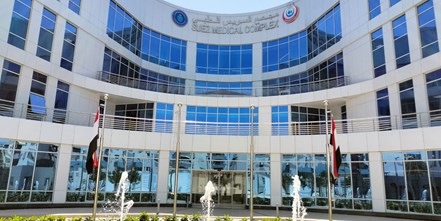



Egypt Healthcare Authority Reviews Key Achievements in Suez, the Last Governorate in the Canal Region to Implement the Universal Health Insurance System
President of the Egypt Healthcare Authority: 23 healthcare facilities in Suez have been accredited, representing 75% of the Authority’s facilities in the governorate, according to the national accreditation standards (GAHAR) recognized by the UN ESCWA.
President of the Egypt Healthcare Authority: 31 medical facilities in Suez provide comprehensive medical and treatment services at all levels to the local population, adhering to the highest global quality standards.
President of the Egypt Healthcare Authority: The cost of implementing the Universal Health Insurance System in Suez reached 5.75 billion Egyptian pounds, highlighting that the system represents a sustainable investment in the health of Egyptians.
The Egypt Healthcare Authority, led by Dr. Ahmed Al-Subki, President of the Authority and General Supervisor of the Universal Health Insurance System project, reviewed its key achievements in the governorate of Suez, the latest governorate in the Canal Region to implement the Universal Health Insurance System.
Dr. Al-Subki explained that 23 healthcare facilities in Suez have been accredited at various levels, representing 75% of the total healthcare facilities in the governorate, in accordance with the national accreditation standards (GAHAR) recognized by the UN ESCWA, reflecting the high readiness of these facilities to provide exceptional medical services with the highest global quality standards.
He added that the Egypt Healthcare Authority provides its medical and therapeutic services in the governorate through 31 healthcare facilities, including medical complexes, hospitals, centers, and family medicine units, ensuring the delivery of health services to citizens with quality and efficiency.
He further mentioned that the total cost of implementing the Universal Health Insurance System in Suez amounted to 5.75 billion Egyptian pounds, covering the infrastructure of healthcare facilities, medical and non-medical equipment, as well as operational costs. He emphasized that this system is Egypt's largest national reform project and represents a sustainable investment in the health of Egyptian citizens, contributing to achieving health equity and ensuring the provision of integrated and distinguished healthcare services to all segments of society.
Dr. Al-Subki also pointed out that nearly 148,000 citizens in Suez have undergone comprehensive medical examinations to date, representing 30% of the population registered in the system, aimed at early disease detection and improving the health of citizens. He stressed the importance of conducting routine health screenings as a core component of maintaining public health and enhancing the quality of life, while also providing better opportunities for treatment and prevention.